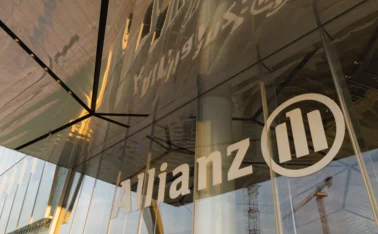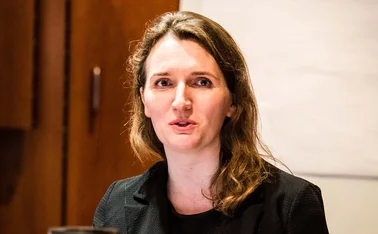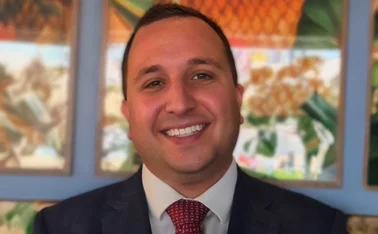
Post Blog: Insurers v Google - the battle continues

How can insurance firms stay close to the top of the all-important search rankings, when Google makes it more difficult than ever before? Kevin Taylor, Gravytrain chief executive, explains.
You may have read my blog post Banking on Search Ranking back in March which talked about brokers' and aggregators' struggles to rank, and then stay, on the first page of Google's search results.
Well I'm afraid nothing has changed on this front. Google's algorithm is harder to crack than ever, and at the same time it's becoming increasingly important for brands to appear in the top 10 for natural search.
If you're not on the first page of results, you risk missing out on a significant amount of revenue and, to the average consumer, you might as well not exist.
So who is the best in the industry at staying on top of Google? And why is this the case? In our most recent quarterly analysis on natural search rankings (1 February - 1 May), Money Supermarket topped the rankings for car, travel and home insurance for the second quarter running.
In fact, following Money Supermarket's acquisition of Money Saving Expert, the company now has two spots in the top 10 across all three sectors - an impressive feat however much clout your company has.
Moreover, Money Saving Expert has accelerated up the rankings into the top 10 this quarter. This is widely believed to be because Google is now starting to look at rankings based on social media engagement.
While Money Saving Expert's forum-based design naturally attracts social engagement, it is far more of a struggle for other players to succeed in this area.
For example, LV and More Than have dropped out of the top 10, from mid-table, in car and home insurance despite undertaking a lot of social media activity. This just goes to show that you have to do the right thing - in fact a combination of a number of the right things - to suit Google's evolving algorithm.
Moneysupermarket and Moneysavingexpert aren't the only winners in this quarter's findings. In fact, this study has seen more movement in the leagues than has occurred for a long time, with developments in all three of the categories observed.
The fact that Co-operative Insurance and Tesco Bank are both doing well demonstrates investment in search engine optimisation over the last few years, which in turn has facilitated a significant boost in the search rankings of these two brands.
Consumers are also becoming increasingly happy to buy insurance from a supermarket, although whether this is price-related or due to brand trust is another matter entirely.
Other winners this quarter include Columbus and Essential Travel. While they are not at the top of the rankings, their Google listings include ‘star ratings' which, by making use of micro-formats, can help attract consumers from the off.
It is clear that Google is happy to mention the rating in the search synopsis, and the ever-changing ranking systems may mean that reviews and ratings could help insurers increase their position in Google's search results.
There were a number of brokers and aggregators that fell significantly in this quarter's study and it seems surprising that established brands like Elephant, Swiftcover, Compare the Market and Confused aren't doing well.
Insure & Go, having done well for a long time, now seems to be struggling, dropping from fourth place in the travel rakings in February to 14th place today.
They are focusing on, and must be investing a lot in, pay-per-click, topping the sponsored search results for travel insurance. However, it is equally important that they continue to invest in natural search, as consumers will often choose a natural ranking over a paid-for link.
So what lessons are to be learned from this quarter's study? Quite simply that to succeed in natural search, brands and aggregators must keep up with Google's ever-changing algorithms.
While three months ago this meant focusing on quality content, a strong social media presence and natural links, clues are appearing that positive customer engagement in terms of star rankings and reviews could be increasingly important.
There is no point in having short, sharp bursts of SEO activity. Companies need to invest in the longer term, constantly adapting their approach in order to stay on that all-important first page of the search results and be competitive online.
Only by maintaining an understanding of Google's changing algorithms and investing time and money into driving natural search, will companies get close to reaching that winning SEO formula.
Kevin Taylor, CEO, Gravytrain
Only users who have a paid subscription or are part of a corporate subscription are able to print or copy content.
To access these options, along with all other subscription benefits, please contact info@postonline.co.uk or view our subscription options here: https://subscriptions.postonline.co.uk/subscribe
You are currently unable to print this content. Please contact info@postonline.co.uk to find out more.
You are currently unable to copy this content. Please contact info@postonline.co.uk to find out more.
Copyright Infopro Digital Limited. All rights reserved.
As outlined in our terms and conditions, https://www.infopro-digital.com/terms-and-conditions/subscriptions/ (point 2.4), printing is limited to a single copy.
If you would like to purchase additional rights please email info@postonline.co.uk
Copyright Infopro Digital Limited. All rights reserved.
You may share this content using our article tools. As outlined in our terms and conditions, https://www.infopro-digital.com/terms-and-conditions/subscriptions/ (clause 2.4), an Authorised User may only make one copy of the materials for their own personal use. You must also comply with the restrictions in clause 2.5.
If you would like to purchase additional rights please email info@postonline.co.uk







